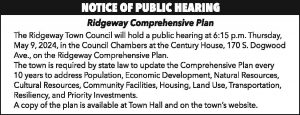COLUMBIA – Internal policies and a class-action lawsuit about vaping were among the several points of controversy at the Feb. 9 meeting of the Richland School District Two Board of Trustees, which was marked by contentious discussion.
The meeting began with more than 20 minutes of debate about how meeting agendas are assembled, who should control the process, and the procedure by which items should be added.
The discussion, first raised by board member Lindsay Agostini, reflected her ongoing concerns about certain board members’ requested agenda items being left out.
With regard to meetings that were held to set the agenda, she said: “Simply, Dr. Elkins [fellow board member] and I were not invited to those.”
Elkins then asked to add discussion of the agenda policy to a future agenda.
Board Chair James Manning declined to consider the request.
“I can recall that when a board member wanted to place any item on the agenda, it was automatically placed,” Agostini said. “We changed the policy so that in order to place something on the agenda, it has to go through the superintendent and board chair.”
“I actually remember that very different than you do,” Manning said, stating that he felt board members currently have more input than they used to.
When discussion moved to approval of the minutes from the board’s previous meeting, Agostini and Elkins – whose input, they say, is often marginalized – pointed out that a failed agenda-related motion they’d made had been left out of the minutes. They asked for it to be added.
During the brief downtime while the addition was being made, Manning quipped, “Does anybody know a good camp song?”
Davis calls for joining lawsuit
Once the board got through approval of the meeting minutes, they discussed Superintendent Baron Davis’ request that the district join in a class-action lawsuit against a manufacturer of vaping devices, an item they had just discussed in a closed meeting. No information or context about the proposed lawsuit was presented.
The motion failed on a 3-3 vote with Vice Chair Teresa Holmes absent due to illness. Manning and board members Amelia McKie and Cheryl Caution-Parker voted in favor of joining the lawsuit. Agostini, Elkins, and recently elected board member Lashonda McFadden voted against.
Seemingly in disbelief that his request was voted down, Davis then requested that someone check to see if the motion really failed (due to the tie vote) before recording it in the record. In the context of the rules by which the board operates, a tie vote means a failed motion.
It was one of several instances of confusion throughout the meeting about the meeting process, which is supposed to comply with Robert’s Rules of Order, a widely used manual for parliamentary procedure.
The biggest bones of contention among board members on the lawsuit issue were the lack of data supporting the district’s involvement and the lack of perceived benefit to the District in the event the lawsuit prevailed.
“I’m not saying that it’s not a problem, but I’ve not heard from a student, I’ve not heard from a teacher, I’ve not heard from a parent, I’ve not heard from an administrator that this is presenting a problem for our district,” Agostini said of vaping.
“If we’re going to jump on the bandwagon of lawsuits,” she said, “I’d be more concerned are we going to start joining in litigation against, say, clothing manufacturers, because a bigger issue – where we spend a lot more time – is on dress code issues.”
Board member Amelia McKie said the issue is bigger than Richland Two and that vaping addiction among students is a problem with national implications.
“It does not cost the district anything whether we win or lose, and it’s not about us,” McKie said. “It’s collective – hence the word class-action.”
Who gets the winnings?
Elkins, noting the lack of data about vaping in Richland Two and the fact that just a handful of school districts are involved in the case, also said she was concerned about the lack of concrete information about how any funds won in the lawsuit would be used.
“It’s been proven that we can say one thing, but once it comes to distributing the funds… things change when it’s not written down,” Elkins said.
Davis then had a bit of a verbal meltdown in response to Elkins’ comment, indicating that his integrity should never be questioned in a public forum.
His reason for wanting the district to join the lawsuit, he said, had less to do with direct impacts in Richland Two and more to do with the ability of the district, as one of the largest in South Carolina, to have an impact on the issue.
“Sometimes as leaders – and we are the fifth largest district in the state – sometimes you take on issues and lend your voices so that those who don’t have a voice can have the strength to do so,” Davis said. “We want to join the collective group of school districts which say we believe vaping is wrong and we want to do something about it.”
After hearing presentations about the school district’s planned performing arts center and an update on legislative issues, the board returned to tedious discussion of its agenda, taking a lengthy process to get a routine item added for an upcoming meeting.
Then came the board member and superintendent comments. Agostini reiterated her desire for consistency between agenda policy and agenda-setting practice.
Then Davis and Manning, who often object to dissent, made speeches criticizing the board’s dysfunction and, in particular, Agostini and Elkins’ repeated efforts to discuss how agendas are set.
“We have to ask ourselves about why we disagree: Are we simply disagreeing for the sake of disagreeing, or is there a purpose behind the disagreement?” Davis said.
“We have an obligation and responsibility to remain civil, and we have an obligation and responsibility to put the business of this district first and foremost, and the business of this district are the students of this district,” he said.
“Disagreements about how to get items on the agenda and so on and so forth that take 10 to 15 to 20 minutes of discussion each at every board meeting does not benefit our students,” Davis continued.
He and Manning both called Elkins out again for her request that planned expenditures be put in writing, reiterating that Davis should not be questioned. Manning, not offering solutions to the issues of controversy, also criticized the board for what he saw as its general dysfunction.










